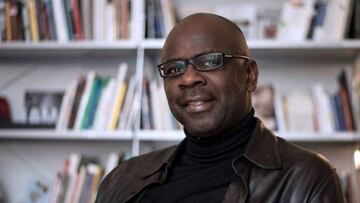Lillian Thuram exclusive interview: "white thinking is everywhere"
In his latest book, former French World Cup winner Lillian Thuram challenges people to understand their history in order to escape racial injustices.

Lillian Thuram is a former French soccer player who won the World Cup and was an extremely accomplished athlete. These days, though, he is focused on more important issues. Since his retirement in 2008, Thuram started the Lillian Thuram Foundation to educate people about racism. It's more than just the issues that most people are already aware of - it's about understanding the past and how the mentalities that sprouted from it came to be.
White Thinking: Behind the Mask of Racial Identity
Being outspoken takes courage
Thuram praises other athletes who have spoken out against racism. "To be very outspoken, very often when you look at history, is to look for trouble," Thuram says.
He encourages every athlete to speak out against racism and not ignore the issue in order to keep peace. He stresses that remaining neutral or silent on any issue is supporting the issue. Though he highly encourages people to study the history of racism and really understand its roots, he also wants people to understand that he's not trying to make anyone feel guilty. He simply wants to challenge them to question themselves and to take a stand.
"I invite readers to think about this: Can we escape these identities and consider ourselves above all as human beings?"